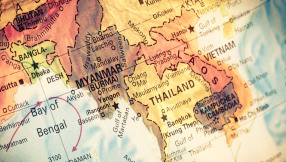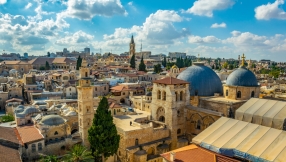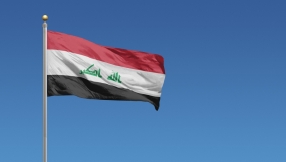Frightened Indonesians Suffer New Sumatra Quakes
Indonesia's meteorology agency issued on Friday the latest in a series of tsunami warnings after another strong quake in Sumatra, although it was lifted about an hour later.
|PIC1|
Officials said food and other aid had reached some of the areas hit by the quake, but added many more tents were needed as people were still sleeping in the open, either because their houses had been destroyed or because they were too scared to return home in case of further quakes.
"We have received aid from neighbouring provinces, government agencies, and international organisations, and we are delivering it to those in need," said Muhammad Syamlan, vice governor of Bengkulu province, which was close to the quake's epicentre.
"What people need most are tents because they are staying in the open."
There have been a series of tremors ranging in intensity from 4.9 to 7.8 since Wednesday's 8.4 quake, repeatedly setting off tsunami warnings in Indian Ocean countries.
There have, however, been no reports of the sort of massive and widespread tsunami whose huge waves caused death and devastation throughout the region in 2004, following a quake of over 9 magnitude.
Seismologist Mike Turnbull of Australia's Central Queensland University warned against complacency over the frequent tsunami warnings.
"The problem is, these were very large eathquakes. They had every capability to generate large tsunami."
At least two areas in Bengkulu province were hit by tsunamis after Wednesday's quake, residents told Reuters correspondents.
About 100 houses were damaged by a 3 metre (10 ft) wave in Serangai, 70 km north of Bengkulu city, but there were no casualties.
"Suddenly, I heard the rushing sound of water coming, it looked black. So I told everybody to run," said Johan, a 60-year-old farmer, who like many Indonesians uses one name. He said most people had already fled to higher ground after the quake.
Some houses had been shifted about 10 metres by the water and tree trunks and large logs littered the main road.
Padang Bakung, a village two hours drive south of Bengkulu, also suffered a tsunami that inundated houses 60 metres from the coast.
"We have a siren, but it doesn't work because of power outages after the quake," said village chief Marsan, adding it could only be heard in a radius of 100 metres anyway.
Marsan, clad in a sarong, said he hoped the government would build breakwaters to shield the village.
"When the quake struck, the sea water spilled onto the streets, reaching the waistline," said Jailani, 40, a fisherman.
Rustam Pakaya, head of the Indonesian health ministry's crisis centre in Jakarta, said 14 people had been killed and 56 injured across the region since Wednesday's quake.
HOSPITAL DRIP
The latest quakes triggered new panic among thousands camping out in makeshift shelters or tents, using torches and kerosene lights, and setting fires overnight to keep warm.
Patients had to be moved into tents in front of the hospital in Bengkulu, the nearest major town to the epicentre of Wednesday's 8.4 quake, the most powerful in the world this year.
"When the first strong quake struck, I ran immediately from the room with my infusion," said Yasin, 50, who had been treated with an intravenous drip for allergies.
Roads in the north of Bengkulu province were lined with tents and a Reuters photographer estimated about 8 in 10 houses appeared badly damaged or destroyed.
Seismologist Turnbull said the region was lucky to have escaped a tsunami similar to the one that killed more than 280,000 people in 2004.
International aid agencies had sent teams to assess aid needs, although many outlying districts had not been reached yet.
The U.N. Office for Coordination of Humanitarian Affairs said on Thursday its initial assessment was that the Indonesian government could cope,
Indonesian Vice President Yusuf Kalla told reporters quake victims would be given help with reconstruction if needed, along the lines of last year's earthquake in Yogyakarta on Java island when more than 5,700 died.
"In Yogyakarta we helped with the reconstruction of houses. In Bengkulu we will do so, too, depending on the extent of the damage."
Indonesia suffers frequent quakes, as it lies on an active seismic belt on the so-called Pacific "Ring of Fire".











